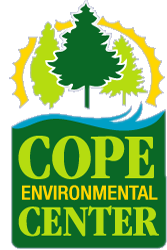PLAIN ENGLISH VOCABULARY PDF >> READ ONLINE
Canada and Australia. In Canada they call it "plain language" because their laws are bilingual. There are different approaches, but the aim is the same: to simplify all official writing by removing unnecessary obscurity and complexity. 11. The Office policy is to draft in plain English, but to do more than that. It is to develop Words and Phrases: A Guide to Plain Legal Language . December 2016 . vi . Extra information, examples of change and no change and references to relevant texts Fowler's English Usage pp 65-6 . Garner's Dictionary p 74 . Garner's Legal Style pp 182-4 . Longman English Usage pp 54-5 . Partridge pp 31-6 . Commercialese : Rule : Avoid 64. Photocopiable vocabulary record sheet 65. Vocabulary record sheet sample 66. Answer key Page: Title: Page: Title: The following websites were a useful reference source during the writing of this book, and are recommended if you want to develop your legal vocabulary further, or if you want to learn more about laws, legal systems, communicates to that audience. Plain English attempts to avoid words that will cause confusion or ambiguity, and to express concepts in a way that makes the most logical sense to the audience. For most legally trained native speakers of English, speaking in plain English will be far more difficult that using complex legal terminology. 1 WRITING IN PLAIN ENGLISH Contents 1. Introduction 2. Use the Active Voice 3. Don't Nominalize Your Verbs 4. Consider Sentence Length and Avoid Run-Ons 5. Simplify Your Writing and Avoid legalese 6. Avoid Compound Constructions 7. Conclusion 1. Introduction Legal writing has a bad reputation as overly technical, verbose, and confusing. Plain English is the style of H. W Fowler, whose Dictionary of Modern English Usage83 is one of the great books of this century. It was Fowler and his brother, in another book, who set out these congenial suggestions: Prefer the familiar word to the far- fetched. Prefer the concrete word to the abstract. Formal Language is like a formal dress, in a formal language you have to be careful with words, you have to choose words with respect. Like you cannot use work 'Ask' in formal language because it is an informal word. You have to be a bit polite in formal language and vocabulary words, rather you can use 'Inquire' which is more formal Woe is I: The Grammarphobes Guide to Better English in Plain English, 2nd Edition, by Patricia T. O'Conner (Riverhead Books) Writing Skills Success in 20 Minutes a Day, 3rd Edition (LearningExpress) Writing Smart: Your Guide to Great Writing, 2nd Edi-tion, by Marcia Lerner (Princeton Review) -INTRODUCTION- ix anthropomorphizing AI—and language models (LM) are one of the more challenging examples of this, as language output is made to be interpreted. This report is not going to teach, or even get into, how to run and deploy language models. Many wonderful practical resources are available for this, at various levels of granularity.2 You may have Easy English or both. This fact sheet provides an overview of plain language, writing style considerations and top tips. What is plain language? Plain language involves writing clearly so readers can find, understand and use the information they need from one reading. The Plain English Foundation describes the key 4000 essential English words 1.pdf. 4000 essential English words 1.pdf. Sign In. Details 4000 essential English words 1.pdf. 4000 essential English words 1.pdf. Sign In. Details P
Comment
© 2024 Created by G1013.
Powered by
![]()


You need to be a member of generation g to add comments!
Join generation g